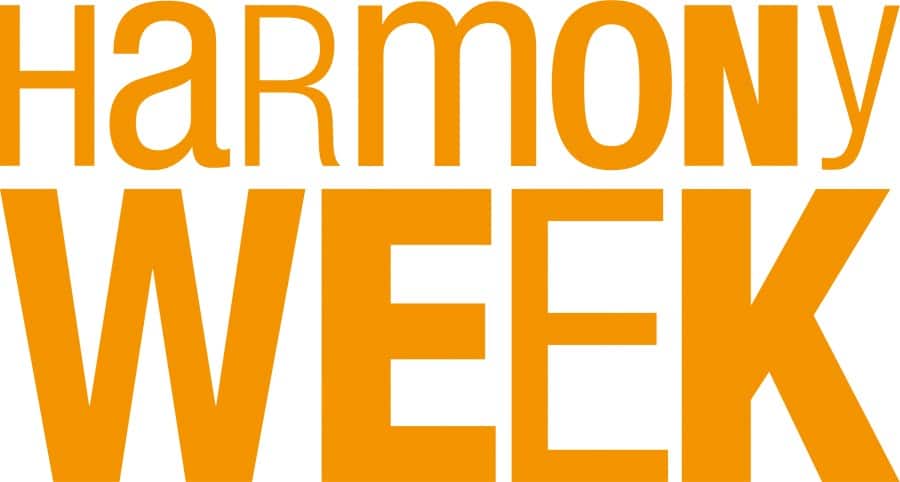Attention Deficit Hyperactivity Disorder ADHD in adults is a neurological condition; attention deficit and hyperactivity affect millions of adults around the world. It can create stress in your life, making it hard to focus and concentrate, leading to feelings of worthlessness and lack of control.
In this article, you’ll learn about the causes and symptoms of ADHD in adults and tips for managing it. We’ll discuss common misconceptions about adult ADHD, strategies for improving time management skills, how it can affect social relationships and job performance, and lastly, how hypnosis can be used to treat ADHD.
With the right understanding and tools, you can take control of your life with adult ADHD.
Key Takeaways
- ADHD is a neurological condition that affects millions of adults worldwide.
- Proper diagnosis and treatment from experienced medical professionals are essential for managing symptoms.
- ADHD impacts the brain’s development and functioning, making it difficult to manage everyday tasks.
- Treatment options include medication, lifestyle modifications, therapy, and hypnosis as part of an adult ADHD treatment plan.
Understanding ADHD in Adults: A Neurological Condition
ADHD is not just a behavioural issue; it’s a neurological condition that can have a profound impact on one’s life. Symptoms of adult ADHD can include inattention, impulsivity, and hyperactivity, making it difficult to succeed at work or maintain relationships.
A proper diagnosis and treatment plan is essential for managing symptoms and improving the individual’s quality of life. To get an accurate diagnosis, individuals should seek out medical professionals with experience in diagnosing ADHD in adults. These professionals can evaluate the individual’s symptoms based on criteria outlined by the American Psychiatric Association and consider any other factors contributing to the individual’s struggles.
Once diagnosed with adult ADHD, individuals should work closely with their healthcare provider to develop an effective treatment plan that works best for them. This may include medication, lifestyle modifications, or cognitive-behavioural therapy.
With education and support from family members and friends, individuals living with adult ADHD can learn to manage their symptoms and lead fulfilling lives effectively.
ADHD is a neurological condition, not just a behavioural issue
As a neurological condition, not just a behavioural issue, ADHD impacts the brain’s development and functioning.
This can lead to impulsivity, hyperactivity, and difficulty with attention and organization.
These symptoms can make it difficult for adults with ADHD to manage everyday tasks and activities.
To properly diagnose ADHD, it’s important to seek medical advice from healthcare professionals who can provide support through medication and psychological help.
With the right management and support, individuals with ADHD can achieve their goals both personally and professionally.
It’s essential to spread awareness of this condition to reduce common misconceptions surrounding adult ADHD and create understanding within society.
Understanding the main symptoms and challenges
Navigating the challenges of ADHD as an adult can be tricky. Still, with a proper diagnosis and treatment plan, you can live a life free of the struggles associated with this condition. Understanding the main symptoms and challenges is key to successful management.
Common symptoms include difficulty paying attention, impulsivity, restlessness, anxiety, depression, and substance abuse. These symptoms vary from mild to severe and often harm everyday tasks. These tasks include following directions, remembering information, or completing work accurately.
Getting diagnosed is essential for properly treating adult ADHD. Medication or psychological support, including hypnosis, is usually recommended to reduce symptoms and improve overall quality of life. It’s important to educate yourself about adult ADHD so that you can better recognize it and manage it effectively.
The importance of seeking proper diagnosis and treatment options
Getting a proper diagnosis and exploring treatment for ADHD in adults is essential for living a life free of the struggles associated with ADHD. A healthcare professional should do a comprehensive assessment of symptoms to diagnose adult ADHD accurately. The next step is to explore available treatment options, which typically involve a combination of medication and psychological support.
When it comes to diagnosing adult ADHD, it is important to consider the individual’s medical history, current lifestyle habits, and any environmental factors that may be contributing to their symptoms. Once diagnosed, there are various treatments available depending on individual needs. Commonly prescribed medications include stimulants such as Ritalin or Adderall, which can help reduce impulsivity and increase focus. Non-stimulant medications such as Strattera or Wellbutrin have also been found to improve concentration levels in people with ADHD. Additionally, psychotherapy can be useful in learning strategies for managing symptoms and developing better coping skills so individuals can live more productive lives.
| Diagnosis | Treatment |
|---|---|
| Comprehensive Assessment | Stimulants (Ritalin/Adderall) |
| Medical History | Non-stimulants (Strattera/Wellbutrin) |
| Lifestyle Habits | Psychotherapy |
| Environmental Factors |
Common misconceptions about ADHD in adults and how to overcome them
Misunderstandings about ADHD are widespread, but with knowledge and support, they can be addressed. Many people falsely believe that ADHD is a behavioural issue that can be solved by willpower alone. However, it’s important to understand that this neurological condition requires professional diagnosis and treatment.
Another common misconception is that only children suffer from ADHD and that adults should have outgrown the condition. On the contrary, ADHD can persist into adulthood and affect various areas of life if not managed correctly. To overcome these misunderstandings, education and awareness are key.
Seeking help from medical professionals, learning more about the symptoms of adult ADHD, and communicating openly with family members or friends about how it affects your life are all important steps to take. With proper understanding and support, adults with ADHD can lead productive lives and achieve their goals.
The Role of Dopamine and Norepinephrine in ADHD
Balancing dopamine and norepinephrine levels is essential for managing the effects of ADHD. Neurotransmitters, such as dopamine, control cognitive processes like attention and concentration. Therefore, when these neurotransmitter levels become imbalanced due to an underlying condition like ADHD, it can lead to a variety of symptoms, including difficulty paying attention, hyperactivity, impulsivity, disorganization, and poor memory recall.
ADHD medications target both norepinephrine and dopamine to help restore balance within the brain. Treatment plans usually include both medication and psychological support to manage symptoms of inattention effectively. When properly diagnosed and treated with the right combination of medication and therapy, those living with ADHD may experience improved functioning in their daily life.
Symptoms and Impairments in Adults with ADHD
You could be struggling with inattention, impulsivity, and hyperactivity, which lead to serious impairments in your day-to-day life. These symptoms of adult ADHD can manifest in difficulty paying attention and focusing on tasks, impulsive decisions that disregard consequences, and restlessness or an inability to sit still for long periods.
Additionally, adults with ADHD may display signs such as disorganization, forgetfulness, difficulty managing time and money, poor job performance, difficulty maintaining relationships, and even reckless behaviour.
To understand the causes of these symptoms, it’s important to look at the biological and psychological components. Research has shown that there are differences between the brains of individuals with ADHD compared to those without the disorder. Specifically, an imbalance between dopamine and norepinephrine in certain brain regions has been associated with many of the symptoms seen in children as well as adults with ADHD.
Furthermore, psychological factors such as stress or trauma can also play a role in triggering or exacerbating symptoms. Individuals need to recognize their limits when managing their condition so they can develop coping strategies when feeling overwhelmed.
By educating themselves and others on the realities of adult ADHD, they can reduce the stigma surrounding this condition and get support from those around them.
How is ADHD diagnosed in adults?
ADHD in adults is diagnosed through a comprehensive evaluation that includes a thorough assessment of symptoms, medical history, and a review of childhood behaviour. This evaluation typically involves gathering information from multiple sources, such as self-report questionnaires, interviews with family or close friends, and input from healthcare professionals. The diagnostic criteria for ADHD in adults are based on the same criteria used for diagnosing children, with certain modifications to account for developmental differences. It is essential to consult with a qualified healthcare professional for an accurate diagnosis and to explore appropriate treatment options.
Effective Management and Treatment Options for Adult ADHD
Finding the right management and treatment options for adult ADHD can be a challenge, but combining medication with psychosocial strategies can help.
A combination of medication and psychosocial support is often the most beneficial approach to managing adult ADHD.
Cognitive behavioural therapy, parent training in behaviour management, and developing coping strategies can also improve daily functioning.
Additionally, incorporating certain activities such as time management and mindfulness meditation into an individual’s treatment plan may help them to manage their symptoms better.
It’s also important to educate oneself and others about adult ADHD to create understanding and support for those affected by it.
Identifying the Areas of Life Most Impacted by ADHD
Identifying the areas of life most affected by ADHD can help you better understand how to manage it to lead a more productive and fulfilling life. Some common areas impacted by the disorder include work, finances, relationships, time management, and social interactions. Impulsivity, low self-esteem, and relationship problems may also be signs that ADHD is affecting an individual’s life.
For example, difficulty paying attention or impulsivity at work could negatively impact job performance or relationships with coworkers. Finances might be adversely affected because of poor time management or impulsive spending of large amounts of money. Low self-esteem as a result of feeling overwhelmed can have adverse effects on relationships with family and friends.
| Area | Impact |
|---|---|
| Work | Job Performance/Relationships with Coworkers |
| Finances | Poor Time Management/Impulsive Spending |
| Relationships | Low Self-Esteem/Feeling Overwhelmed |
Balancing Medication and Psychological Support for Optimal Results
Combining medication and psychological support is essential for achieving optimal results when treating this condition.
Adult ADHD is a disorder that can impact individuals in many areas of life, such as concentration, attention span, organization skills, emotional regulation, and impulsivity. According to the Diagnostic and Statistical Manual (DSM-5), the core symptoms of ADHD include inattention, hyperactivity/impulsivity, or a combination of both.
While medications can help reduce some of these symptoms, they cannot provide all of the necessary tools for managing adult ADHD on their own. Therefore, it’s important to combine medication with psychotherapy to treat this condition effectively.
Psychotherapy can offer coping strategies and techniques for dealing with the daily challenges associated with ADHD while also helping individuals understand the root causes of their behaviours. Moreover, it can help improve communication and decision-making skills, key components in successfully managing this disorder.
With proper guidance from a healthcare professional skilled in treating adult ADHD, combined with medication and psychological support, individuals have an increased chance of improving their quality of life.
Coping Strategies for ADHD and Recognising Your Limits
Now that you understand the importance of balancing medication and psychological support for optimal results when managing ADHD as an adult, it’s also important to develop coping strategies and recognize your limits.
Attention Deficit Hyperactivity Disorder (ADHD) can be a difficult condition to manage. Still, with the right tools and resources, adults can learn how to cope in both their personal and professional environments.
Creating structure and routines for yourself is one of the best ways to help manage symptoms. This means setting clear goals for yourself, breaking tasks into smaller chunks to make them more manageable, using lists or reminders to stay on track, and avoiding activities likely to lead to procrastination.
In addition, seeking out supportive work environments where understanding individuals are present can make it easier for adults with ADHD to succeed in their careers. It’s also important to set boundaries in social situations so you don’t overextend yourself or become overwhelmed with too much stimulation.
Finally, educating yourself and others on adult ADHD can reduce the stigma associated with the condition while increasing understanding within your community. With these strategies in place, it’s possible for adults with ADHD to lead successful lives without feeling overwhelmed by their disorder.
Improving Your Time and Money Management Skills
Constructing a daily routine, setting reminders and alarms, and prioritising tasks are essential strategies for improving time and money management skills. To begin with, creating a daily routine is important for staying organised. A routine should include fixed times for waking up, meals, exercise, work or school-related activities, chores, hobbies/leisure activities, relaxation time and going to bed. Setting reminders and alarms can help you stick to the schedule. Additionally, focusing on the most important tasks first is important so they don’t get neglected due to a lack of energy or motivation later on.
| Budgeting is an effective tool for money management for adults with ADHD. Tracking expenses and income every month can help individuals keep track of their spending habits to identify areas where they could save money. Additionally, seeking expert financial advice can provide useful guidance when dealing with investments or debt-related matters. | Type |
|---|---|
| Time Management | Money Management |
| Creating a Daily Routine | Budgeting |
| Setting Reminders & Alarms | Tracking Expenses & Income |
| Prioritising Tasks | Seeking Financial Advice |
How ADHD Can Harm Social Relationships and Job Performance
Having ADHD can make navigating social relationships and succeeding in the workplace challenging. Individuals with ADHD may struggle to interpret nonverbal communication, pick up on social cues, or negotiate in intimate relationships. Interpersonal difficulties can lead to job loss or difficulty finding employment in the workplace.
Furthermore, symptoms of impulsivity, distractibility, and forgetfulness can have a significant impact on job performance. These challenges can lead to significant stress and harm personal and professional relationships.
To cope with these issues, individuals with ADHD must educate themselves about their condition as well as those around them to reduce stigma and increase understanding. Here are some helpful tips for managing symptoms:
- Find ways to stay organised.
- Make lists of tasks for each day.
- Utilise technology such as alarms or calendars.
- Take advantage of support from family members or specialists.
- Learn more about the causes and symptoms of ADHD.
By studying their condition further and implementing these strategies, people living with ADHD can gain the skills needed to improve their social skills and job performance.
The Importance of Educating Yourself and Others on Adult ADHD.
Learning about and accepting adult ADHD can be the key to unlocking a more fulfilling life for those living with it. Educating yourself on the condition is paramount; understanding its symptoms, such as difficulty concentrating, impulsivity, and disorganization, and learning about available treatments like medications or therapy, can help you better manage your condition. It is also essential to educate others about ADHD so that they can understand and appreciate what you are going through.|
| Adhd in adulthood | Common symptoms include difficulty focusing, impulsivity, and disorganization. |
| Symptoms like | Treatment options may include medications and/or therapy. |
| Treatment includes medications | Raising awareness of ADHD in workplaces and schools helps create an accommodating environment for those with this condition. |
| Others Understanding | Constantly focusing on faults can lead to low self-esteem; identifying and focusing on strengths is important for accepting oneself. |
By educating yourself on ADHD and raising awareness of it, among others, you can create an atmosphere of acceptance that allows one to live a more fulfilling life despite the many challenges that come with this neurological disorder. Developing self-awareness not only helps individuals better manage their symptoms but also promotes positive emotions, which in turn leads to improved relationships both personally and professionally.
Hypnosis to Treat ADHD
Hypnosis may provide an additional tool to help those with ADHD gain greater control and focus over their thoughts and actions. Research has shown that hypnotic suggestions can affect reaction times in sustained attention tasks, leading to improved concentration and focus for those with adult ADHD. Additionally, hypnosis can also empower patients by helping them experience a greater sense of control over their thoughts and actions.
It’s important to note that while hypnotherapy is not a standalone treatment for adult ADHD, it can be used as a supplemental therapy when combined with other treatments such as medication or behavioural therapy.
When considering the use of hypnosis as part of an adult ADHD treatment plan, here are three key points to keep in mind:
- Hypnotherapy has been shown to improve reaction times in sustained attention tasks related to adult ADHD symptoms.
- Hypnosis helps promote feelings of control over thoughts and behaviours associated with ADHD symptoms.
- Integrating hypnosis into treatment can reduce the overall cost of Neurotherapy for those with adult ADHD symptoms.
Conclusion
You’ve now learned about the symptoms, challenges, and misconceptions of adult ADHD. It’s important to seek proper diagnosis and treatment options if you think you may be affected by this neurological condition. With the right help, adults with ADHD can improve their time and money management skills, as well as their social relationships and job performance.
Educating yourself and others on adult ADHD is essential in helping individuals recognize the signs in themselves or those around them. Hypnosis can also be a helpful tool for treating adult ADHD when used alongside other therapies recommended by your doctor or therapist.
Don’t let this condition keep you from achieving your goals – get the help you need today!

Written by
Abi McIntyreMedical author and researcher with over 10 years of experience, specialising in mental health.
Ready for tailored support?
Book a complimentary consultation with the Norwest Wellbeing team.
We'll talk through your goals, match you with the right practitioner, and outline the first steps to lasting change.
More resources to explore
View all articles →Visiting Norwest NSW 2153
Discover the beautiful suburb of Norwest, NSW 2153 - find local attractions, Norwest business park, and easy commuting options when visiting Norwest NSW.
The Neurobiology of Sleep-Dependent Subconscious Reprogramming
How targeted auditory messages during sleep transitions may reshape neural pathways and emotional patterns in developing brains.
Diversity, Respect, Belonging
You've probably noticed how your neighbourhood has transformed over the years, welcoming faces and traditions from across the globe. That makes Harmony Week so meaningful - it's your chance to experience the vibrant cultures that now call A



